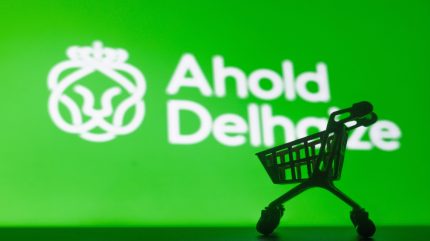
International supermarket giantAhold Delhaize trails its peers in adopting environmentally friendly refrigeration systems, as per findings from the latest Environmental Investigation Agency (EIA) report that evaluated major supermarket chains.
Despite Ahold Delhaize’s CEO Frans Muller recently serving as co-chair of the Consumer Goods Forum (CGF) – a group dedicated to advancing the use of natural refrigerants – the company is not progressing as quickly as others toward net-zero carbon emissions in its cooling operations.

Discover B2B Marketing That Performs
Combine business intelligence and editorial excellence to reach engaged professionals across 36 leading media platforms.
In 2018, the Consumer Goods Forum pledged to shift to natural or ultra-low global warming potential (GWP) refrigerants by 2025.
The report, titled ‘Cooling the Climate Crisis – Why investing in sustainable refrigeration is crucial for decarbonising supermarkets’, indicates that up to 70% of a supermarket’s non-supply chain emissions are due to cooling, which includes energy consumption and the use of potent greenhouse gas refrigerants.
Ahold Delhaize has over 7,700 stores in Europe, the US, and Indonesia. It reported a revenue of €88.6bn in 2023. In May, it reported net sales of €23.28bn in the first quarter of fiscal year 2025, a 5% rise at constant exchange rates and 7.1% at actual exchange rates.
EIA senior climate campaigner Fionnuala Walravens said: “As a major retailer in the EU and US, Ahold Delhaize could use its European progress to drive change in the US, where it still lags behind. In EIA’s 2024 Scorecard, it scored just 24 out of 100, with under 1% of US stores using low-GWP refrigerants.”

US Tariffs are shifting - will you react or anticipate?
Don’t let policy changes catch you off guard. Stay proactive with real-time data and expert analysis.
By GlobalDataOther supermarkets such as Jerónimo Martins, Metro, Carrefour, and Tesco were also evaluated, with Carrefour and Tesco receiving specific criticisms for high emissions and poor transparency, respectively.
EIA has created the Net Zero Supermarket Cooling Pathway, a guide to assist retailers in reducing cooling emissions. It also encourages investors to push companies towards sustainable practices.
Walravens added: “With CEO Frans Muller until recently co-chairing the Consumer Goods Forum, the company has both the visibility and responsibility to lead and must act on the CGF’s 2025 natural refrigerant resolution.”
When asked by EIA to comment on the finding, Ahold Delhaize responded by stating that 40% of its EU stores’ refrigeration systems use natural refrigerants.
EIA’s report recommends stopping the installation of new hydrofluorocarbon (HFC)-based refrigeration and committing to a complete HFC phase-out by 2030 in Europe and by 2040 globally.
The report also highlights that while cost-effective and energy-efficient alternatives such as natural refrigerants are widely adopted in Europe, many retailers, especially in the US and developing markets, are slow to move away from HFCs.
Investing in natural refrigerant systems not only offers financial returns within four to ten years but also continues to reduce operational costs due to their long lifespans and energy savings, the report notes.
Retailers delaying the transition may face rising operational costs and regulatory penalties, the report added.





